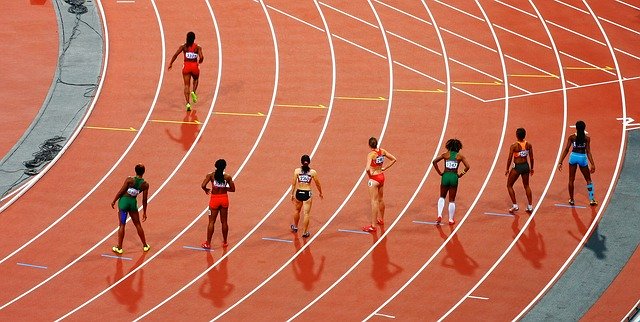
One consequence of the coronavirus pandemic is the postponement of the Tokyo 2020 Olympic Games (as well as the Paralympics) until July 2021.
The fact that the games take place only every four years makes this postponement possible and limits the long-term consequences. But there are inevitable effects on other sporting events which may now clash with the re-timed Tokyo games. The sports calendar is important and designed to minimize such clashes under normal circumstances. The consequences for major international sporting events which occur annually, such as the European Champions League in soccer or the NFL’s Super Bowl, would be more severe as one competition would likely be lost altogether.
The Tokyo Olympics involves 15,000 (unpaid) athletes and other competitors competing in 33 different sports spread over more than 40 venues and resulting in the issuing of 7.8 million tickets, of which 4.5 million have already been sold. However, it is the sale of broadcasting rights, together with their commercial sponsorship, which is more lucrative and on which the financial success of the Games depends. The postponement gives rise not only to logistical issues, but also to legal and commercial ones, as some of the contract terms cannot be fulfilled as envisaged. It has been estimated that over $10 billion has already been spent in preparing for the Games and that an additional $2 billion will be incurred as a result of the postponement.
In the past, estimates of the costs and benefits of the Games have been disputed. Those responsible for putting the case for a city winning the bidding process will want to put the bid in the most favorable light. Thus, the size of any multiplier effects may be exaggerated and insufficient allowance made for leakage and diversion effects. A lot of weight is placed on legacy effects, such as promoting exercise amongst the home population, or a feel-good factor or the return of additional foreign tourists in the future; but these are hard to measure. Studies by economists suggest that the economic benefits are frequently exaggerated in ex ante studies often carried out by consultants. The benefits are usually much smaller in ex post studies using a variety of econometric techniques, often comparing long-term trends in employment in locations where the events took place compared to locations not so affected.
As far as the labor market is concerned, increases in employment will be short-lived and concentrated among the less-skilled. In the case of the London Olympics it was estimated, for example, that 7,000 jobs would be created in the construction industry and 12,000 in legacy effects. As far as Tokyo is concerned any construction jobs created will by now have disappeared and already be accounted for in GDP figures. There is every reason to believe that the economic impact of postponement will be relatively small. The postponement means that the (small) beneficial fillip to the aggregate economy will, like so much other economic activity, not be occurring this year. But unlike so much activity—retail, services, and others—where the output is lost for good during this crisis, the remaining benefits from the Olympics will stimulate the Japanese economy next year.
© Peter J. Sloane
Peter J. Sloane is Emeritus Professor in the School of Business and Economics, Swansea University, UK
Read more on the coronavirus crisis:
"Coronavirus and the labor market," by Daniel S. Hamermesh
"Fighting a coronavirus recession," by Daniel S. Hamermesh
"Pandemics and the labor market—Then and now," by Karen Clay
"Pricing the lives saved by coronavirus policies," by W. Kip Viscusi
"Health effects of the coronavirus recession," by Christopher J. Ruhm
"The long-term consequences of missing a term of school," by Simon Burgess and Hans Sievertsen
"Coronavirus, telecommuting, and the labor market," by Nikos Askitas
"Expectations about Covid-19 social-distancing measures in Italy and their impact on compliance," by Guglielmo Briscese, Nicola Lacetera, Mario Macis, and Mirco Tonin
"The coronavirus crisis and the next generation," by Bart Cockx
"Korea: A paragon of dealing with coronavirus," by Sok Chul Hong
Please note:
We recognize that IZA World of Labor articles may prompt discussion and possibly controversy. Opinion pieces, such as the one above, capture ideas and debates concisely, and anchor them with real-world examples. Opinions stated here do not necessarily reflect those of the IZA.